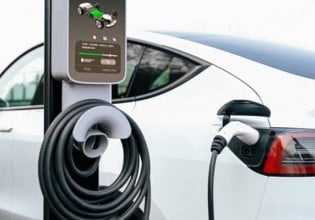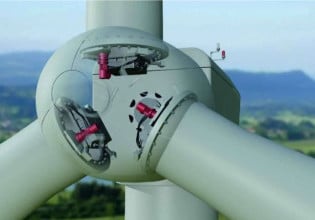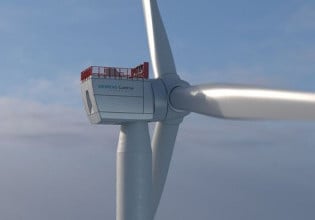Project LEVIS Aims to Develop Lightweight EV Components
Project LEVIS, with 13 partner groups, officially launched last month.
LEVIS brings together 13 partners from seven countries with the goal to develop lightweight components for electric vehicles using eco-design and circular approaches.The project recently received €4,9 million from the EU as part of the research and innovation Horizon 2020 funding program.
Manufacturing More Lightweight EV Components
The LEVIS project is scheduled to last three years, during which the partners will work towards the creation of solutions facilitating the transition to sustainable mobility.
This goal will be pursued by developing lightweight structural parts for electric vehicles (EVs) while integrating circular economy principles in the design phase.
The first phase of the program was inaugurated with a digital kick-off event on February 2. Now, the 13 partners are going to officially start working towards the goal of decreasing the weight of EV components without compromising on performance.
“Since heavy batteries power electric cars, automotive manufacturers and suppliers must look for new lightweight construction technologies to compensate for this extra weight in other vehicle components,” a spokesperson for Steinbeis-Europa-Zentrum explained in a statement.
Logo used courtesy of Steinbeis-Europa-Zentrum
The new technologies could directly contribute to improving vehicle efficiency in terms of consumption and a range with one battery charge and reducing the environmental pollution.
Since they are developed using eco-design and circular approaches, the new parts will also be manufactured utilizing eco-friendly components.
“This means that we pay special attention to the use of recyclable materials and design the components in such a way that at the end of their life there is no waste and all parts can be recycled or reused for the same or another application,” said Theodora Skordili, Business Development Manager at Cenex Nederland.
Logo used courtesy of Cenex Nederland.
The project’s technical and economic feasibility, together with its environmental impact will be assessed through three real-case demonstrators: a suspension control arm, a battery holding set, and a cross-car beam.
A Technical Partnership
The LEVIS project brings together partners with different fields of expertise, including material science, automotive components manufacturing, and End-of-Life (EoL) management.
By using multi-material solutions based on fiber-reinforced thermoplastics, the consortium will try to prove that the manufacturing of those components is not only environmentally sustainable but also feasible, cost-effective, and scalable.
“We will use multi-material solutions based on thermoplastic composites of carbon fibers, optimally integrated with metals and manufactured with low-cost and scalable manufacturing technologies,” explained José Ramón Valdés, project coordinator of ITAINNOVA.
Cenex Nederland will lead the implementation of the project’s eco-design strategies in the product design phase, together with the evaluation of the environmental and economic performance of the experimental lightweight EV parts.
On the other hand, Steinbeis-Europa-Zentrum will be responsible for sharing the project results and providing support in their marketization.
The LEVIS team plans to introduce the new electric vehicle components into the market by 2024.
The project will now follow a structured exploitation strategy that will cover multi-actor stakeholder consultation, intellectual property protection, business modeling, and an advanced commercialization plan.
For more information about the LEVIS project, you can follow this link here.






